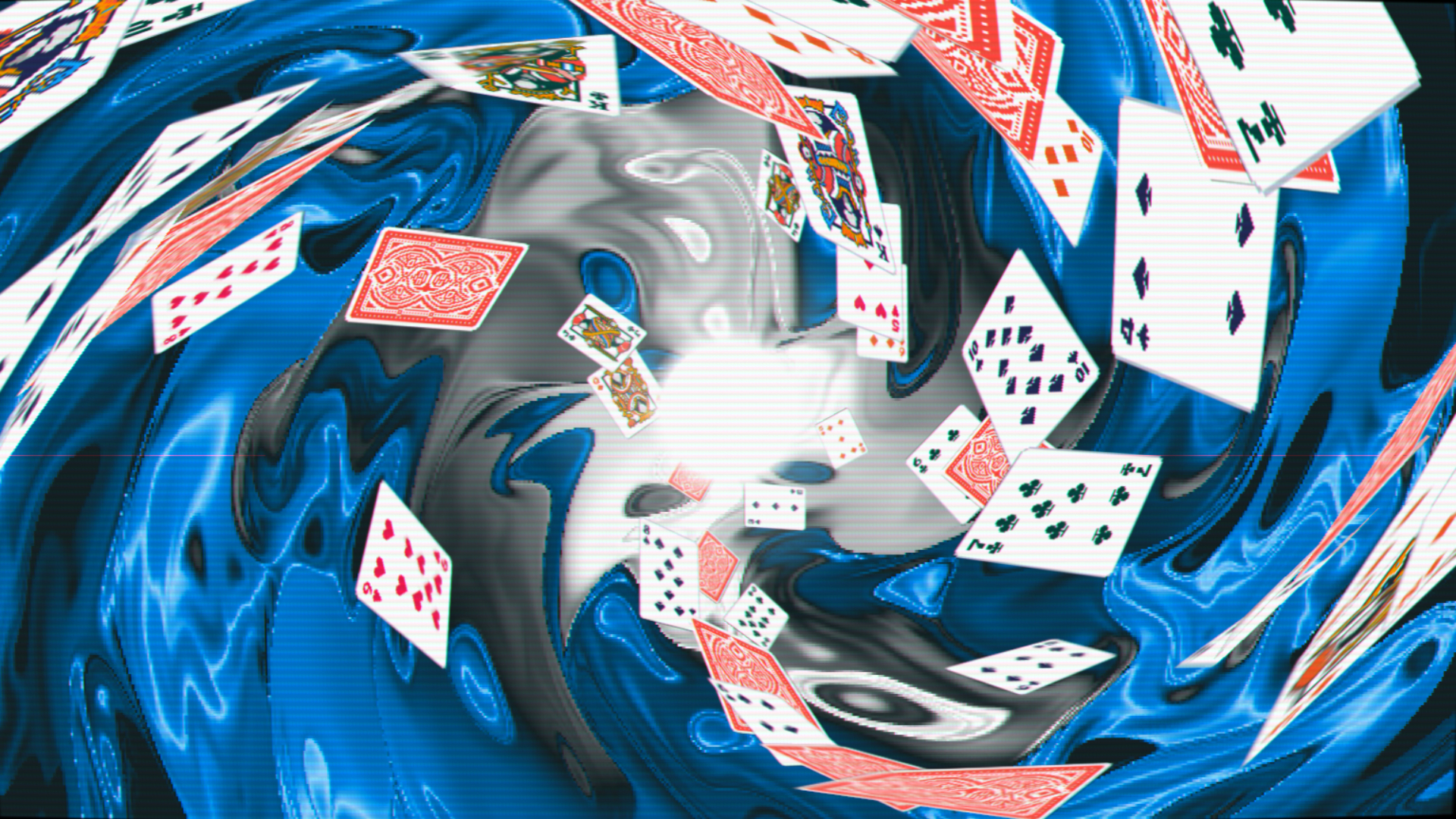
Balatro isn't just a game, it's an all-consuming way of life. You start out innocently throwing pairs together, and before you know it you're a poker degenerate, desperately chucking out royal flushes and five-of-a-kinds as you chase the high of a perfect hand.
So, given that if you're reading this you're probably thinking about nothing but this game all day every day, you might as well get good at it. That's where these Balatro tips come in. There are all sorts of important tricks and strategies that the game doesn't make obvious, and they could make the difference between flunking out with a 20 point pair and smashing your way into Ante 12 with a million point flush.
Starting strong
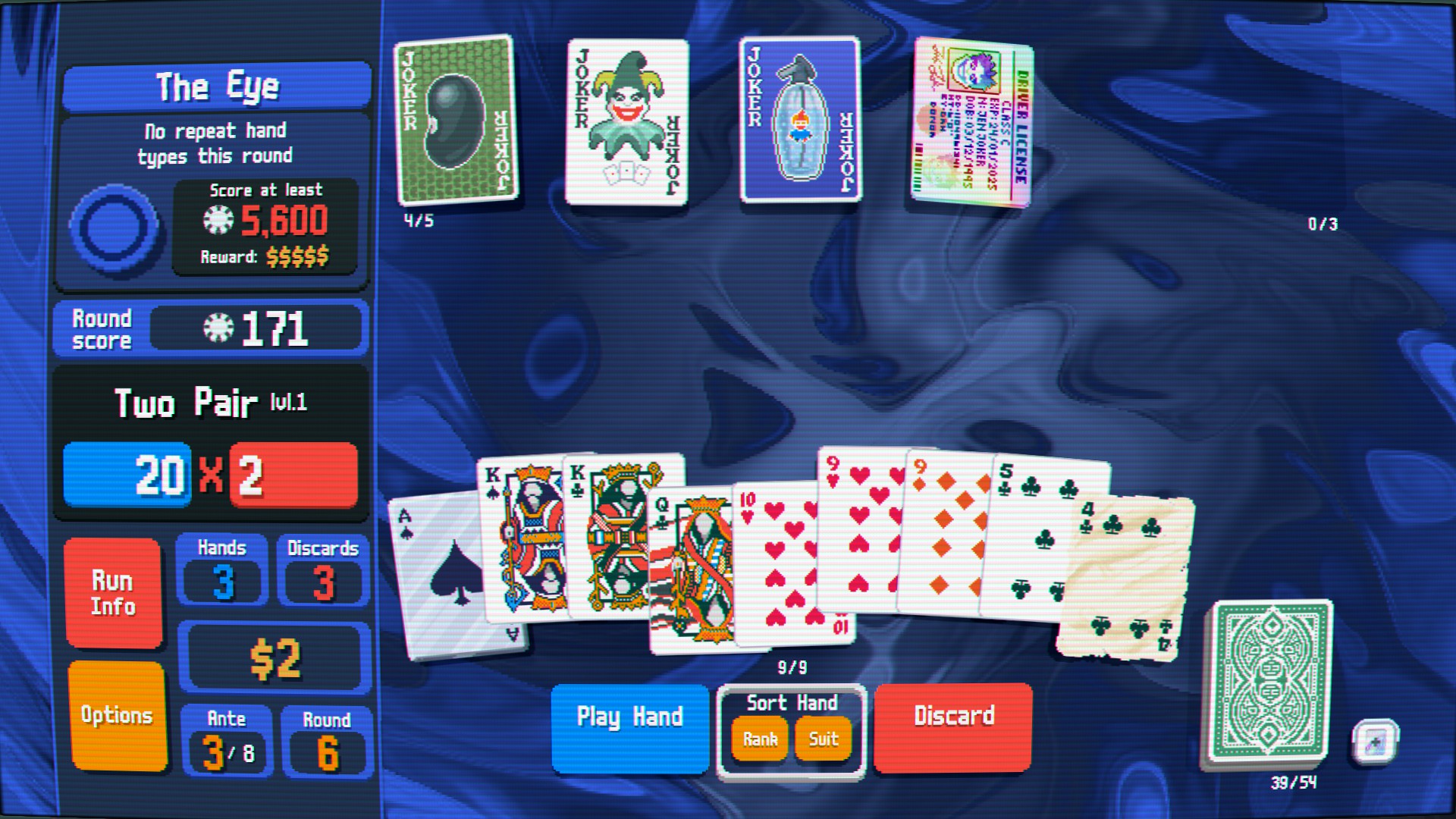
Getting an early lead is hugely important in Balatro—even if it's clear your build is unsustainable, if it gets you some big wins early it will help you accumulate cash and give yourself the breathing room to transition to a more long-term build later on. The more easily you win blinds, the more money you earn from unspent hands, and the more space you have to make long-term choices and investments.
For this reason, Jokers that grant short-term bonuses are a great pick early on, such as the Gros Michel, Ice Cream, or Popcorn. Jokers that give a flat bonus that's relatively easy to trigger can also work, such as ones that give extra chips or mult to certain suits or easy hand types. Jokers with very long-term bonuses that must be accumulated over time, such as Hiker or Vampire, should be picked up only if you're already looking very safe for the next few blinds, as they'll take a long time to pay off.
Jokers that generate money are also vital. If you're just living blind-to-blind with your cash, you're going to struggle to create a good build. Your goal should be to accumulate $25 over the first couple of antes—every $5 you have at the end of a blind earns you $1 interest, to a maximum of $5 for $25. That's free money and it really adds up. It'll be much easier to get to that point if you have one strong money-earning Joker, such as Rocket or Business Card.
Crafting your build
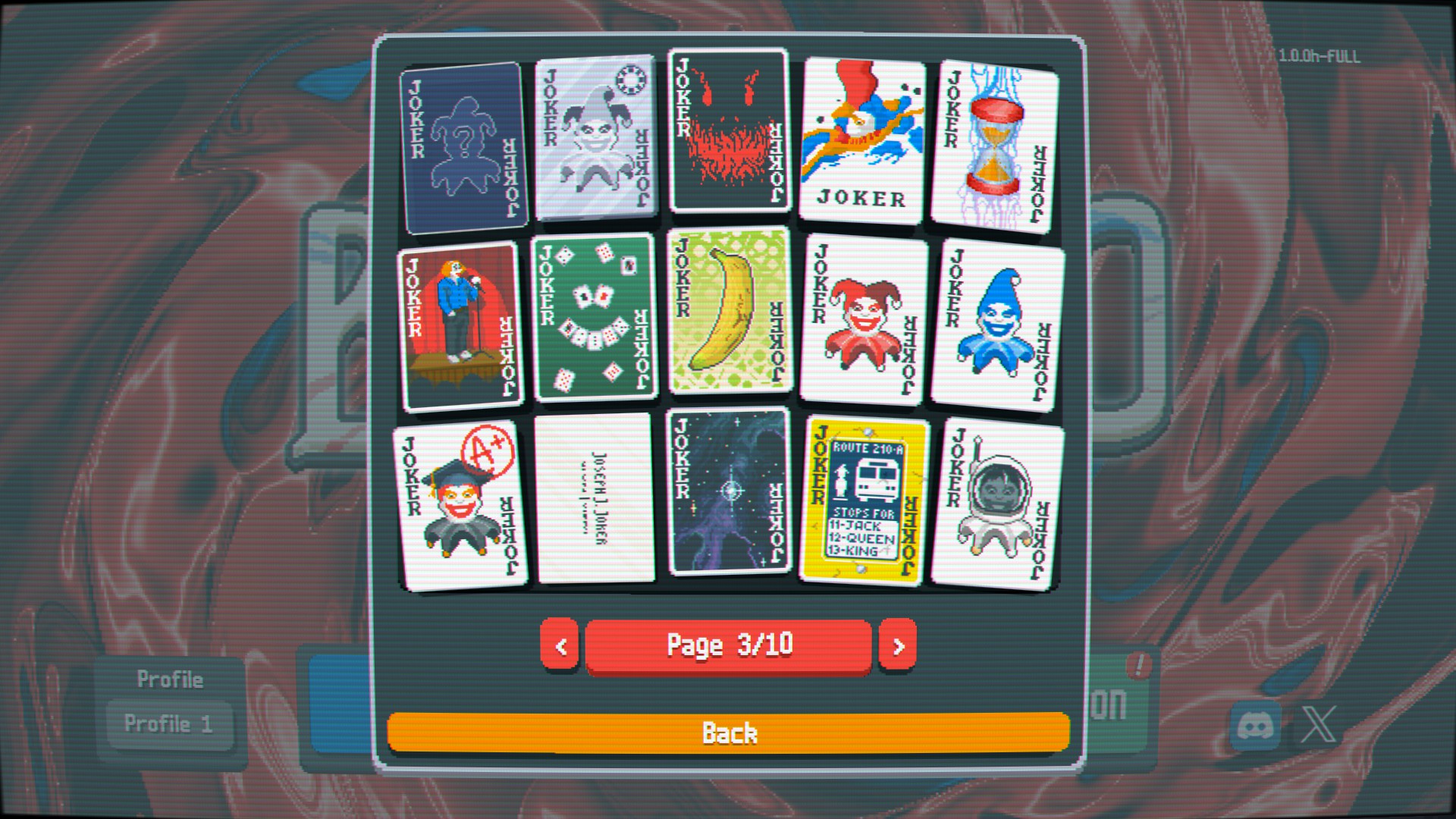
So what does a successful Balatro build look like? While you're always at the mercy of what's available in the shop, your goal should be to carve out the most focused synergy you can to carry you to Ante 8.
Typically it's best to commit to one kind of hand, and build your whole strategy around that. Keep Jokers that support that one hand, pick up the relevant Planet card whenever possible, and use Tarots to tailor your deck—removing cards you don't need, buffing ones you do, and changing suits if you're focused on flushes. There are builds that can work using multiple different hands, but zeroing in on one is usually the path of least resistance. If in doubt, flush is probably the easiest one to go with, or full house can be a relatively simple pick, while straight tends to be trickier and require more careful discarding strategy.
From your Jokers, you're looking for ways to gain bonus chips and/or mult on that hand. Typically mult is better than chips, because it scales more powerfully when combined with other bonuses. Now, confusingly, there are also Jokers that multiply your mult—signified by a red X, such as "X2 mult". These are your big hitters, because rather than just adding to your mult, they multiply it, and if stacked with each other will magnify your build exponentially.
Other stats and bonuses can be really helpful, but only once you've got a solid base of chips or mult—extra discards, for example, can be a huge advantage, but being able to whittle down to a perfect hand is useless if that hand won't score you enough to win the next blind. Hand size (how many cards you hold in your hand) is another good one to boost, but hands (the amount of hands you can play in a round) is less useful than it appears—if you're not winning blinds in two or ideally one hand consistently, it's usually a sign that your build is falling behind, though extra hands will at least earn you a bit of extra money if left unused.
When it comes to your deck, you're looking to create as much consistency as possible. Don't just pick up every cool looking card and flood your deck—usually it's actually better to use the Hanged Man tarot card to reduce the size of your deck, cutting out cards you don't need so you're more likely to draw the ones you do. When enhancing cards, try to only enhance the ones you're likely to use—there's not much point having a foil red seal four if you're going for face card hands, for example.
Ordering
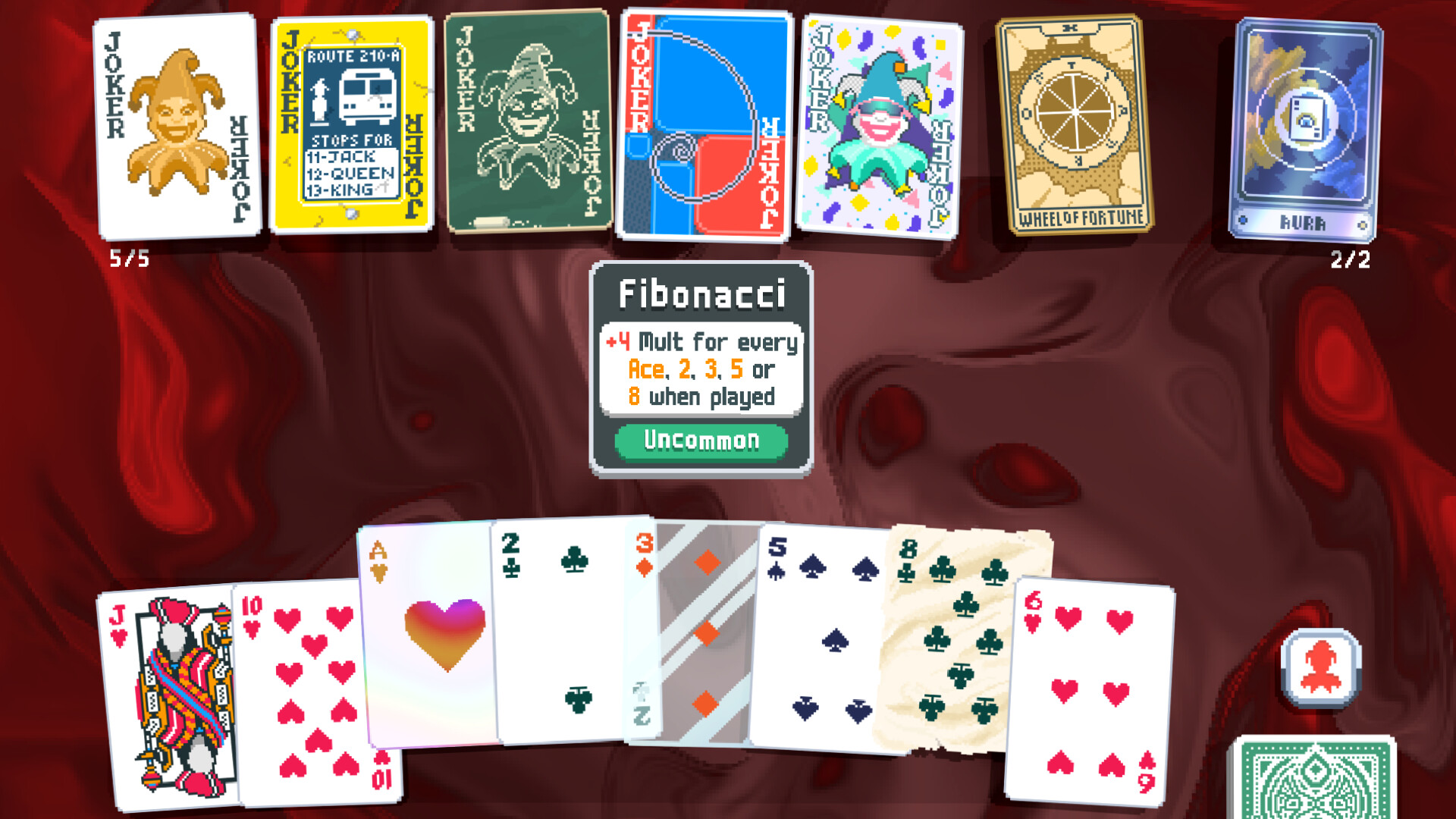
Something that's easy to miss is that the order of cards and Jokers matters. Cards being scored, cards in hand, and Jokers will all trigger their effects in the order they're placed—click and drag them around to find the most advantageous sequence. Generally, X multipliers should be placed at the end of the row, with the highest one last, because the more chips and mult are accumulated before they multiply it, the more benefit you're getting out of them.
It can also be to your advantage to change the order of your Jokers mid-round. For example, if you have a Blueprint Joker, which copies the ability of the card next to it, you might want it next to another Joker that triggers at the start of a blind, then moved to be next to one that grants a bonus to the first hand, then moved to be next to a big X multiplier for a big scoring hand. There are a few different Jokers that can benefit from dancing around a bit like this, but bear in mind that any rearranging you do while your hand is still being scored won't take effect until after that scoring is complete.
Playing your hand
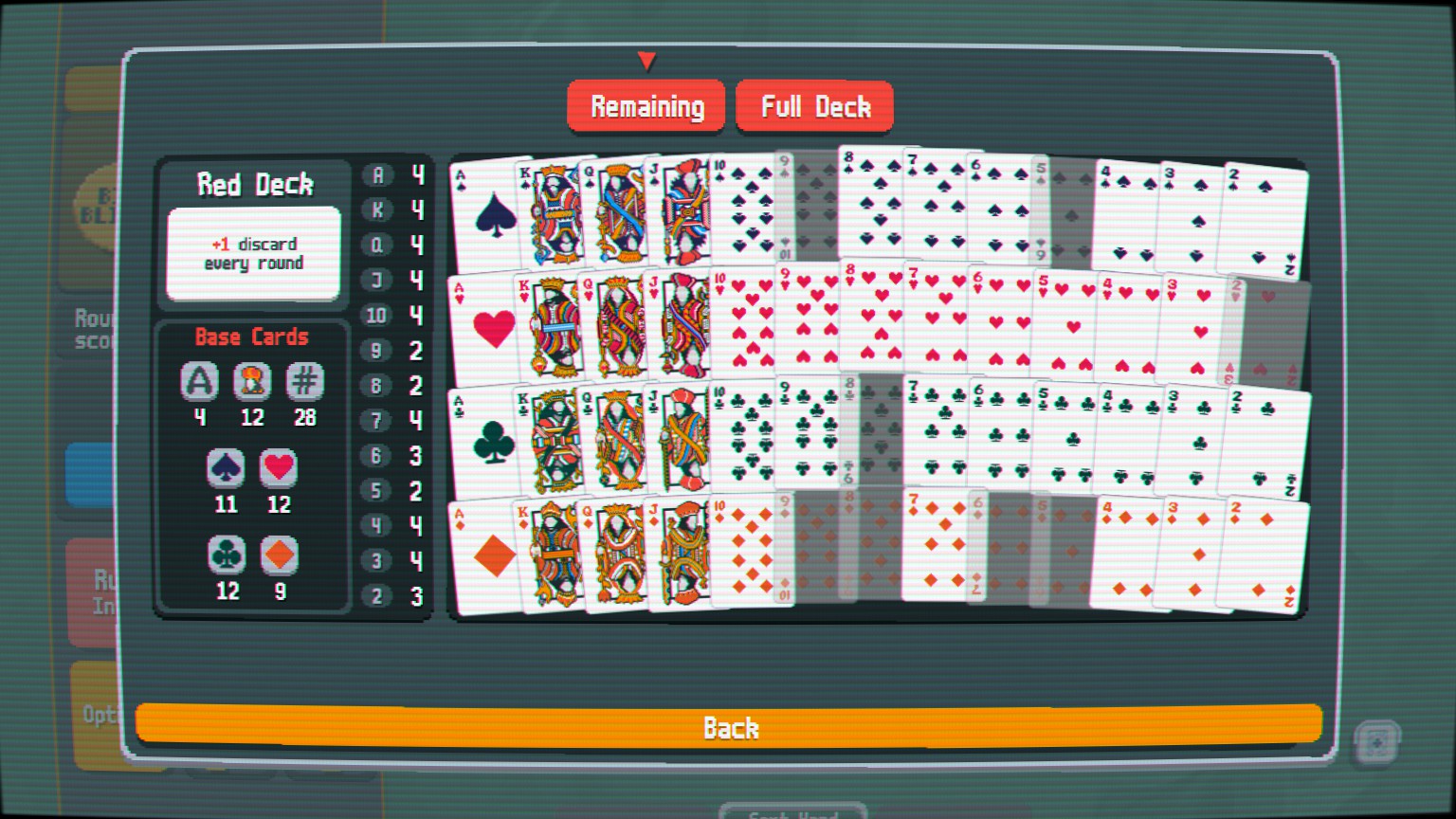
When choosing which cards to keep and which to discard, have a strong idea in mind of what hand you're trying to play. Don't try and keep a few different options spinning at once—if you're looking for the cards for two different straights or flushes at the same time, for example, chances are you'll end up with neither.
When you're discarding, keep in mind that discarding up to five cards still only costs one discard. You usually want to be discarding the full five as much as possible, to get maximum value out of your discards. Any time you're discarding just one or two cards hoping to get exactly the one you need, you're relying too much on luck.
Keep in mind that you can also get rid of cards by playing them. If your played hand is less than five cards, you can throw in extra cards even if they won't score—that's often a great way of getting rid of bad cards without spending a discard. In desperate times, it can even be a good idea to play an entire hand of just cards you want to clear out, earning a low score that turn but hopefully setting yourself up for a great hand next turn, rather than wasting good cards on a bad hand.
You can click on your deck at any time to see what cards are remaining in it. That's a huge help, because it allows you to see clearly your chances of drawing the card you want. If you're looking for pairs and you've got three sixes left in your deck and only two sevens, you know which one you're more likely to be able to get together.
Run strategy
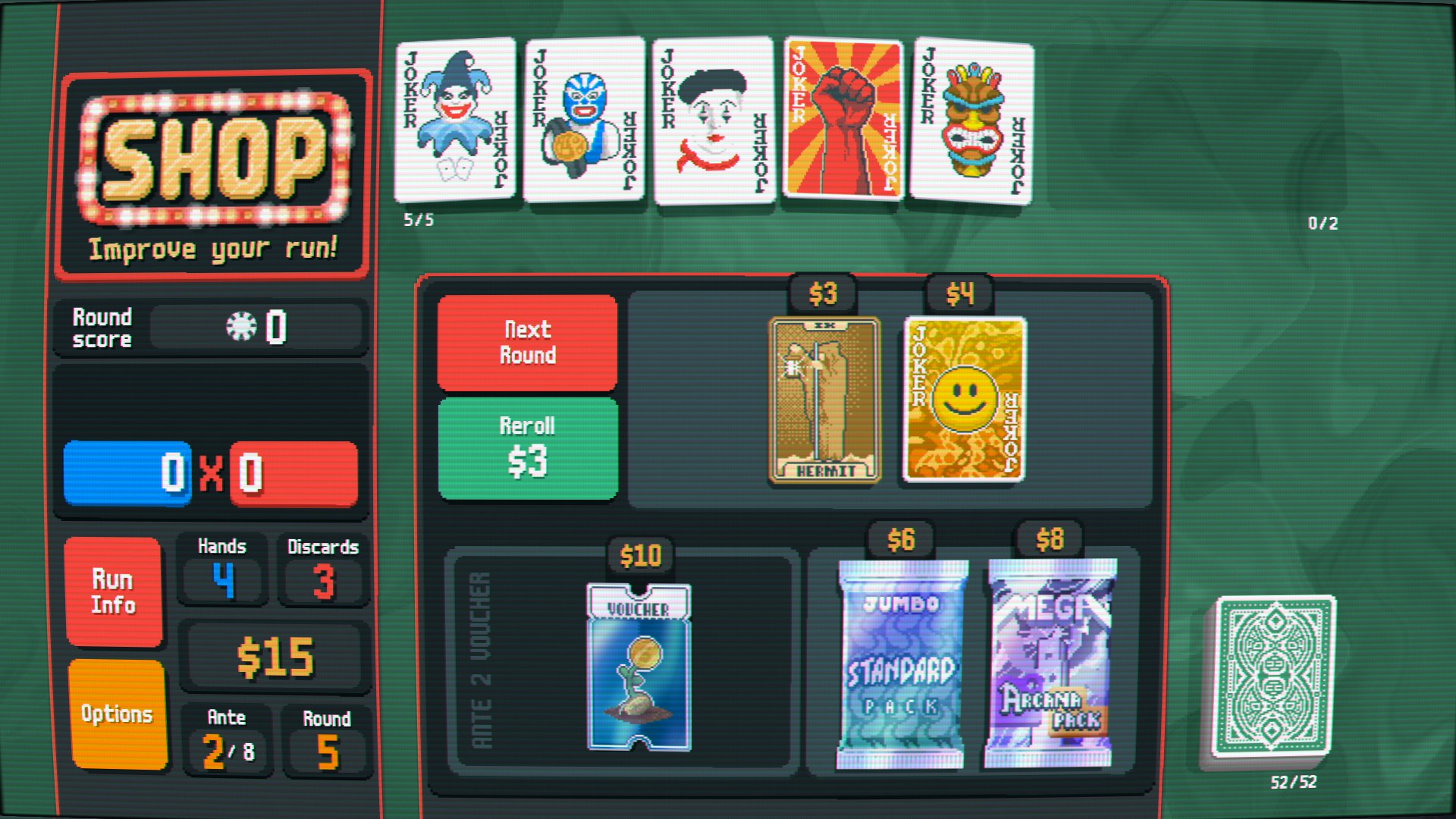
During a run, pay close attention to the blinds for each ante, and plan accordingly. If the upcoming boss blind runs counter to your build, and you can't re-roll it, you need to pivot. Your all-face-cards build isn't going to fare well against a boss that debuffs all face cards—it may be time to sell some Jokers or grab something with a short-term boost to get you over that hill.
The small and big blinds can be skipped—doing so loses you the money you would have earned and loses you an opportunity to shop, but gains you a powerful bonus. This is a tricky mechanic to get the most out of, but the key things to consider are: is the bonus worth it, and is your build currently strong enough that you'll survive jumping ahead?
Vouchers can provide excellent bonuses, but you need to be careful when you buy them—they're expensive, and their benefits are often only felt over a long period of time. Ones that earn or save you cash, such as Clearance Sale or Reroll Surplus, are good to look out for, but the easily overlooked king of vouchers is Hieroglyph. It lets you sacrifice a hand to go back an ante, like skipping back to an earlier level. That's amazing in Balatro because it gives you a huge amount more breathing room to earn some cash and work on your build while doing blinds you already know your set-up can beat.
When you do complete a run (congratulations!) be aware that winning Ante 8 is not the end. You can keep going with your build in endless mode, and try to progress through more Antes. This gets very hard very quickly, but it's a satisfying way of seeing how strong your build can get, progressing to Antes higher than eight is also key for earning several useful unlocks.
In fact, did you know that past a certain Ante, the blinds get so high they have to be represented with mathematical formulas instead of numbers? Try not to let that keep you up at night. Good luck, my jokerfied friends—follow these tips and you'll be playing in the big leagues in no time. May the river ever flow your way.







